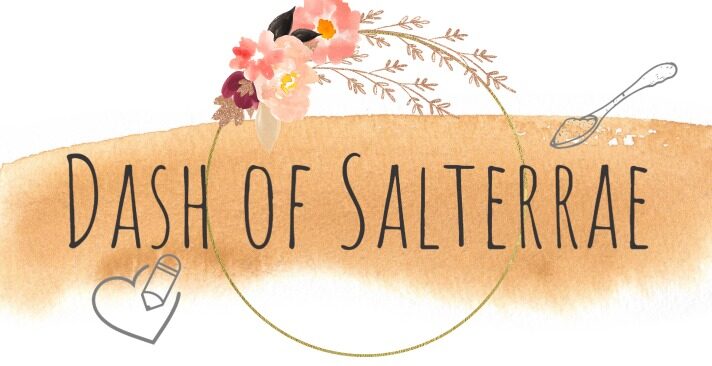This past weekend we celebrated the introduction of our precious Tsipporah and officially welcomed her into our home congregation. After having many people ask how we choose “Tsipporah Ruth” as a name, this was finally our opportunity to share the story behind the decision:
Tsipporah, which means “bird” in Hebrew, was a name on our minds for many years. Back in the early days of our relationship Jonathan and I, like most young and in love couples, would often talk about our plans for the future. I insisted that our future son be named Yehudah.
I remember the moment “Tsipporah” entered the picture rather clearly. We sat in a diner waiting for our food and having another discussion about our future (I was about 19 or so). After talking it over for what was probably the 100th time, Jonathan asked what we would do if we were to have a daughter someday. Up until that moment, I hadn’t put any thought into the possibility. I had been so wrapped up in the intuition that we were eventually going to have a boy, I had no idea what girl names I preferred for a daughter. Since I had nothing to say on the issue Jonathan simply stated that he had always liked the name “Tsipporah”.
And that was that. I figured I would think it over later and come up with my own preferences to debate over, but as we left the diner that night her name settled rather nicely in my mind. From then on further conversations about our future kids always seemed to include the idea of having a Yehudah and a Tsipporah. We were simply waiting for the right time to meet them.
The name “Ruth” came to me shortly after our diner conversation. I was observing Shavuot (equivalent to Pentecost) for the first time with the Messianic congregation we were beginning to call home. The traditional reading for this holiday is the Book of Ruth, which up until that point I had never read in full (for those who don’t know, growing up I had to journey outside of my home for religion. I didn’t have my own Bible and relied heavily on what I could pick up from youth groups and visiting the churches of whoever wanted to invite me). As I got to know Ruth during the study, I connected deeply with her journey throughout the text.
So I mentioned to Jonathan the possibility of “Ruth” as a middle name for our future Tsipporah. From then on she was (going to be) known as “Tsipporah Ruth”. When we became pregnant for the first time I fully expected a boy. The night before we were scheduled to find out the gender, Jonathan and I sat down to make our final decision on names. We sifted through both boy and girl possibilities, but the reality of the situation was I only had “Yehudah” in mind. When the ultrasound confirmed we were having a son, I wasn’t surprised in the least.
With baby number two I was less sure, but held a sneaking suspicion that we were going to have our baby girl. After all, isn’t that what we had naturally planned? At least I did. When the ultrasound confirmed her gender, I was once again not surprised. I did, however, begin to have a wave of doubt about our name choice.
When we last tossed around baby names (in our first pregnancy), we still came to the conclusion of “Yehudah Yishai” and “Tsipporah Ruth”. The same names we always talked about. Part of that had to do with the fact that I wasn’t fully committed to finding a girl’s name at that time. I was too (rightly) convinced in my mind that we were having a boy, and he was going to be our Yehudah. This time around we hadn’t revisited possible alternatives, and I began wondering if we should at least pay some thought to other names. Just in case she was meant for something we had never considered.
After leaving our appointment Jonathan went back to work, and I went back home. The more I thought about it the more bothered I became over the fact that we never gave other names a chance. Once I got home I began searching and making lists. I went through dozens of names, researching their correct pronunciations and meanings. I made a narrowed list I approved of and sent them to Jonathan, who was too busy with work to respond to my text messages.
To further my frustration I had to pause my obsessive investigation when the mail arrived. Packages are a big deal to Hudi, so when he found a box on the doorstep we both had to stop everything and see what was inside. I tore myself away from the list of names I had been playing with and begrudgingly sat in the foyer with him to open the box. As I expected, the package contained used children’s books (I emphasize “used” here). As always, when books come in the mail, Hudi and I read them immediately, so naturally he crawled into my lap and we opened up The Carrot Seed.
I already felt irritable that my attention was being drawn elsewhere (I was anxious to figure out the name situation right that moment), and almost as soon as I began reading my disgruntlement increased. I specifically choose a book marketed as being in “very good” condition. Yet there, on the second page, some kid before us had written in the book. I was trying to calm the building hormonal nerves, when I actually looked at the writing:
“Zepporia”
The writing in the book said “Zepporia”.
I was frozen and in shock for a moment. No, it wasn’t the same exact name we had been planning all these years. But it was close enough to completely halt my baby name search. “Zipporah” is the more common transliterated spelling used in English Bible translations. “Z” is the closest single Latin letter to the Hebrew letter “Tsadi” (צ), which more accurately transliterates into a “TS”. And no, we weren’t planning to add the extra “ia” at the end of the name. But, what were the chances of this? Whether the spelling is “Tsipporah”, “Zipporah”, or “Zepporia” it is not a common name here in America (none of them are listed on the social security’s top 1,000 names for 2015. I checked out of curiosity). Yet of all the used copies of this book for sale, we received the one that had a variation of her unique name scrolled across one of the pages. On top of that, the timing of this find was perfect. We just found out we were having a girl and needing confirmation on our decision I was literally pulled away from my search and redirected to our original choice. The one G-d had put on our hearts so many years before.
To add extra spin to the circumstances, I also noticed that The Carrot Seed was written by a woman named Ruth Krauss.
Snapping out of my shock I immediately messaged Jonathan with a picture of the book. There was no question from either of us that Tsipporah’s name was set in stone at this point. After my moment of concern had been followed by something I perceived as confirmation, I was finally able to settle on what the name “Tsipporah Ruth” means.
She is named after the Biblical Tsipporah and Ruth. Tsipporah, who was the wife of Moses, is a woman I find intensely fascinating and admirable. She saves Moses’ life on their way from Median to Egypt (Exodus 4:24-26), and I tend to see her as an example of strength during a hopeful, yet intimidating time.
While Tsipporah, to me, is a woman of fierce bravery and fortitude, Ruth is an exemplary woman of a patient and loving faith. When we first meet her in the Biblical narrative, she is a Moabite who was the widowed daughter-in-law of Naomi, a Hebrew. After her husband dies, she refuses Naomi’s demand that she return to her Moabite home, and declares one of my favorite verses in the Bible:
“Where you go, I go. Where you stay, I stay. Your people shall be my people, and you’re god my god“.
The magnitude of determination in that stance carried Ruth to Bethlehem with Naomi, where G-d blessed her with Boaz, an honorable and godly man who takes her as his wife.
The lives of both these women have played a crucial role in G-d’s ultimate plan for the world. Tsipporah is partly to credit for the eventual reception of Torah, and the establishment of Israel. Ruth’s commitment to Naomi, and Naomi’s G-d (our G-d), brought her into Bethlehem where she met Boaz. Together her and Boaz created a lineage that lead to King David, and eventually Yeshua (Jesus).
Whatever impact our Tsipporah Ruth has on this world, it is our hope that she establishes it through a faith that reflects something similar to the example of her namesakes. I pray that she remains a pillar of righteousness as she stands against adversaries throughout her life, just as Biblical Tsipporah stood against Pharaoh. It is also in our prayers that her relationship with Yeshua (Jesus) maintains a grounding of commitment similar to that of Ruth. Wherever He goes, she will go. Where He stays, she will stay. His people shall be her people, and may He always be her G-d.
Originally published 3/5/2017





Hairstyles Women
Hello there! I could have sworn I’ve been to this website before but after checking through some of the post I realized it’s new to me. Anyhow, I’m definitely glad I found it and I’ll be bookmarking and checking back frequently!
StacieRPittard
You probably have! It’s been buggy for the past months and I’m in the process of wiping it and reposting. It will be back in working order soon!